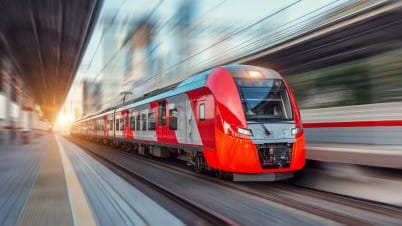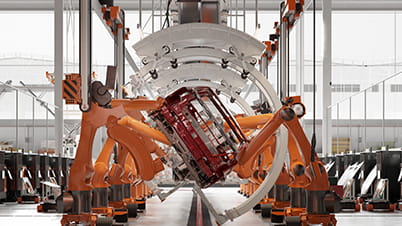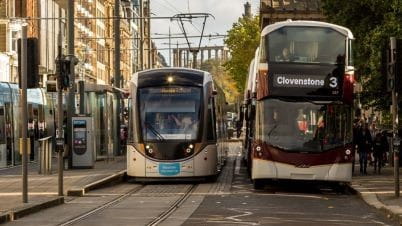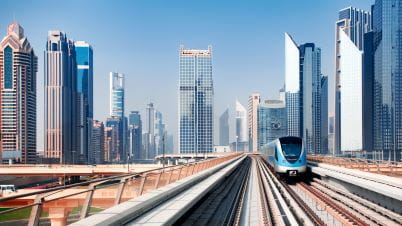In transportation projects, products matter, but what does the buyer need to know about the vendor to make the right choice?

When I was young(er), I used to face what I call “surgery job interviews”: that type of grilling (which today seems terribly outdated), in which, after loads of questions and answers, the interviewer asked “Why should we hire YOU?”. Both interviewer and interviewee froze in that moment, because both sides knew that the whole outcome could change based on the answer to just one question.
Buyers always ask the same question
That question was tricky at that time in job interviews, and it is tricky today too, but in a different context: selecting the right vendor partner for a transportation project. “Wait, what are you saying, Mauro? What do these two very different situations have in common?” Easy: it’s me! I was there at that time, and I’m often engaged in transportation projects now (together with a multitude of colleagues, of course).
The same tricky question I faced years ago in interviews is often raised to a vendor by different actors (or buyers, if you like) from transport authorities and civil contractors to signaling companies and system integrators as well as design and engineering companies―and several more. But why is the situation so complex? And how should the vendor answer? Let’s clarify a few other things before jumping to a conclusion.
Why are large transportation projects so complex?
Large transportation projects (the ones we all love to deal with) are a capital-intensive business. They need a lot of money to happen and before they happen, sometimes because a large civil infrastructure is also planned, other times because the non-civil part is still huge by itself. The larger the project, the bigger the bag of money.
Here’s a fun fact about those projects: they take ages to happen. As an example, the project I’m working on now was designed in 2020. (That wasn’t even the first design, but let’s simplify it.) We started working on the project in November 2023, and the first passenger won’t buy their ticket before 2028. Why such a long time? Another easy answer: because those projects impact the land and citizens of a city, region or nation (when not international, which adds another layer of complexity). That causes a lot of interaction with local government, which slows progress.
The huge timespan is, obviously, not all spent on a single activity: there are companies that prepare a project feasibility study, companies that design the project, companies that refine the design and finally companies that prepare the bid. Then come the bidders, and the party really kicks into gear!
Finally, to have the complete picture, all those companies often split their work into sub-packages to ease the pain. For every package, they go to market for the most appropriate vendor. More time!
What do you think is the smallest package (in amount of money) of the whole project? It’s the telecom package, exactly the one in which ALE tries to play an important role. Still good so far? Everything clear? Excellent!
Now that we understand the complexity, let’s jump back to the second part of my initial question: “How should the vendor answer that loaded question?
A “must” for the transportation market
To be considered the right choice in this kind of market, a vendor must (not “should”, not “could”, not “shall”, but MUST) be aware of its role, which is indeed critical but not the most important in terms of money. A vendor must also be aware that most large transportation projects happen in an international context. (Ironically, my current project is happening in Italy, but was designed by a non-Italian company.)
Being as international as projects are, is a big advantage for a vendor. It also helps to have open solutions and to leverage API openness to remain attractive for the largest number of projects. Certainly, it doesn’t hurt to have a large professional services team able to customize solutions according to project needs. Many other “technical” advantages can also swing decisions in favor of a particular vendor, but again…in one sentence, to have success in this market, a vendor must learn the language, do the homework and be adaptable to its rules (however crazy they seem sometimes).
So, what answer am I suggesting vendors must give? Say it again and again: “We are flexible.”
Últimos blogs

Smart Manufacturing Solutions: The Future of Connected Fact…
Smart manufacturing solutions enable connected factories through reliable, intelligent network connectivity that powers automation and efficiency.

Improving Collaboration in Multimodal Transport
Rainbow transforms how companies, staff and passengers operate and connect in public multimodal transport systems.

Growing Needs Demand Effective Differentiation for Hotels
Growing needs demand effective differentiation for hotels to optimize operations and enhance guest experiences.

Onboard Communications for Secure and Efficient Driverless …
The metro and light rail shift to driverless trains makes onboard communication systems vital for safe, efficient operations.





